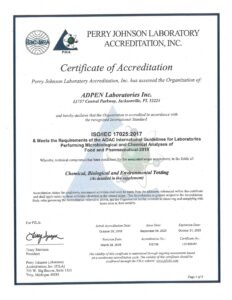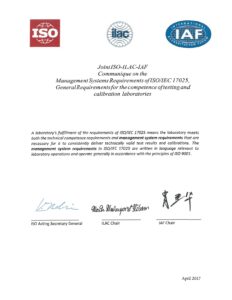PFAS TESTING
PFAS Testing Services
Accredited. Reliable. Results You Can Trust.
ADPEN Laboratories offers high-quality PFAS testing under ISO/IEC 17025:2017 accreditation, supporting regulatory compliance and product safety for the food, beverage, water, and environmental industries. Our scientists specialize in method development and complex matrix analysis—helping you meet today’s toughest standards with confidence.
Why PFAS Testing Matters
Per- and polyfluoroalkyl substances (PFAS) are persistent, bioaccumulative chemicals linked to health and environmental risks. Regulatory scrutiny is increasing—whether you’re managing product safety, supply chain quality, or environmental liability, knowing your PFAS levels is critical for compliance and consumer trust.
How We Help
ADPEN provides PFAS testing using EPA Methods 533, 537.1, and 1633, with expert consultation and analytical support. Whether you need validated results for finished products, raw materials, water, or environmental samples, our dedicated PFAS platform delivers fast, defensible results.
-
ISO 17025-accredited laboratory
-
EPA methods for drinking water, non-potable water, and solids
-
Custom method development and validation available
-
Volume pricing for high-throughput studies
Fast, Reliable Turnaround Times
We understand that timing matters. ADPEN offers competitive turnaround options to meet your project needs—whether you’re working under regulatory deadlines or internal quality control timelines. Rush services available upon request.
Ready to take control of your PFAS risk?
Common Sources of PFAS Exposure
PFAS compounds are used in a wide range of industrial and consumer applications, leading to widespread environmental and human exposure. Common sources include:
-
Drinking water near manufacturing sites or firefighting training areas
-
Food packaging (e.g., grease-resistant wrappers, microwave popcorn bags)
-
Nonstick cookware and stain-resistant textiles
-
Cosmetics and personal care products
-
Industrial discharge and contaminated soil or biosolids
Due to their persistence, PFAS can accumulate in the environment and the human body over time.
Matrices We Test
ADPEN Laboratories offers PFAS analysis in a variety of complex sample types, including:
-
Drinking water and groundwater
-
Surface water, wastewater, and leachate
-
Soil, sediment, and biosolids
-
Food products and packaging materials
-
Raw materials and finished goods
-
Plant tissues and environmental swabs
We’re equipped to test across a range of regulatory and industry-specific requirements.
Services We Provide
Our PFAS testing services are designed to support both regulatory compliance and investigative needs:
-
EPA Method 533, 537.1, and 1633 for PFAS in water, solids, and complex matrices
-
Custom method development and validation for unique applications
-
Data packages and reporting suitable for submission to regulatory agencies
-
Consulting support to interpret results and manage risk
-
High-throughput batch analysis and volume pricing for long-term monitoring
-
Rapid turnaround options for time-sensitive projects
Whether you need a one-time test or a long-term analytical partner, ADPEN is ready to support you.
LET ADPEN TAKE CARE OF YOUR TESTING NEEDS
ADPEN Laboratories | 11757 Central Parkway, Jacksonville, Florida 32224 USA | (904) 645-9169 | info@adpen.com


